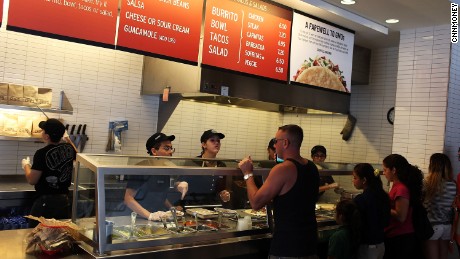The Fair Labor Standards Act of 1938, or FLSA, protects workers by (1) requiring a minimum wage, (2) mandating overtime pay for work exceeding 40 hours in a workweek, (3) prohibiting child labor, and (4) requiring employers to keep accurate time records.
There’s a problem, though. Consider an individual worker with a solid wage claim. A recent survey of New York employment violations estimated workers were divested of an average of $3,016 annually, out of total annual earnings of $20,644.
The problem and solution
Three -thousand dollars is a big loss to someone making $20,000 a year; it’s 15% of their earnings. Yet, an individual claim of that amount often isn’t worth the time and cost of bringing a lawsuit, for the lawyers or the individuals themselves.
Enter the class actions and collective actions. These aggregate actions allow plaintiffs to pool claims that would be uneconomical to litigate individually.
Class actions and class action lawyers often get a bad rap. The large-scale lawsuits are seen as minimally rewarding plaintiffs with a few dollars or a coupon, while the lawyers get rich on one-third of these huge settlements. That’s sort of true.
It’s also not a fair perception, because these wrongs otherwise would not have been prosecuted individually. The law firms have to invest substantial capital in suing on behalf of hundreds or even thousands of plaintiffs, and the firms alone shoulder the financial risk of losing in court.
If their clients don’t win, the clients don’t get their overtime, but the firms are out millions of dollars. We don’t fault Wall Street for betting in certain markets; we shouldn’t fault law firms for investing their own money on their injured clients, especially when no one else is rushing to the aid of these workers. (Full disclosure: I’ve been involved as a lawyer in some class/collective action cases, the last of which was in 2010.)
The other benefit of class and collective actions is that they effect social and economic change. One plaintiff’s lawsuit for $3,000 won’t change a multinational corporation’s policies. A collective action seeking unpaid wages on behalf of several thousand past and present employees? That will make any industry take a hard look at their payment practices.
‘Off the clock’
It’s not so hard to believe that employees would be made to stay late at any company, big or small. Most of us have worked a minimum wage job and, at some point, worked “off the clock.” We didn’t complain because, well, it was a “take it or leave it” situation. Plus, everyone else seemed to be doing it, and we all needed the job too much to rock the boat.
A defendant like Chipotle might argue that their timekeeping policy explicitly prohibits off the clock work, and that Chipotle does not have any unwritten timekeeping policy that contradicts its written policy. This defense would essentially be that the company’s written policies are clear, and that any accidental extra work is the fault of some rogue manager. The company would likely have plenty of records and manuals to back this up. But it’s not about the written policy coming from corporate headquarters; it’s about the actual practice in the trenches.
It’s like that movie “A Few Good Men.” In the classic film, Tom Cruise’s character has to prove that the US Marines have an unwritten tradition of “code reds,” vigilante acts of violence used as self-policing among fellow Marines. In the film, Jack Nicholson, as the commanding officer of the Marine base in Cuba, officially denies the existence of code reds, while secretly condoning and even ordering their execution.
Of course, in the movie, no manual or pamphlet, no set of orders or regulations indicates that a Marine’s duty is to perform “code reds.” But Cruise’s character also points out that the Marine Outline for Recruit Training contains no information about how to get to the mess hall either.
Instead, as one testifying Marine puts it, he didn’t starve because the mess hall location wasn’t documented; he just “followed the crowd at chow time.” How many of us have been asked to stick around the restaurant after close to help clean up, and we just “followed the crowd”? Of course, life at Chipotle is hardly the same as life as fictionalized at Rifle Security Company, Windward Side, 2nd Platoon, in the film. But loyalty and camaraderie can make us all subjugate our individual best interests for the perceived good of the team.
Proving wage and hour violations can be like proving “code reds.” The employer can usually produce reams of paper and records indicating that they keep accurate records, pay overtime, and strictly follow the FLSA. The workers in these cases have plenty of anecdotal evidence that the reality is different from the training manual, but often the manual is compelling black-and-white evidence of compliance, along with the testimony of a corporate witness describing the company’s efforts to follow the law.
Proving the case
Proving employer liability under the FLSA is relatively easier for plaintiffs, when compared to other kinds of actions.
In an “off the clock” case, courts have indicated that an employee only has to establish on a prima facie level that he was not paid for all compensable time worked, and that the employer’s records are inaccurate. Then the burden shifts to the employer to prove either the actual hours worked or that the employee’s testimony about his time worked is not credible. So then, even if Chipotle’s time records contradict the employee’s testimony, the employee can still prevail.
Follow CNN Opinion
The lead plaintiffs have to show that all the other represented plaintiffs are “similarly situated.” This means that each of the plaintiffs has to have a similar experience in being denied wages. After the parties have exchanged documents and given testimony in depositions, a court has to decide whether each plaintiff is similarly situated to the named plaintiff. The court will not be lenient here, and it might dismiss the case as a “collective action” if it concludes that all the plaintiffs have completely different claims.
Class and collective actions are important vehicles for protecting the rights of individual workers. To paraphrase Col. Nathan Jessup, we live in a world that has wage laws and those laws have to be guarded by lawyers with briefcases. Who else is going to do it? The companies? Definitely not. The government? No. We’ve left that to private law firms to risk their own capital to invest in the rights of workers. It’s the truth; we should be able to handle it.
Source: www.cnn.com




